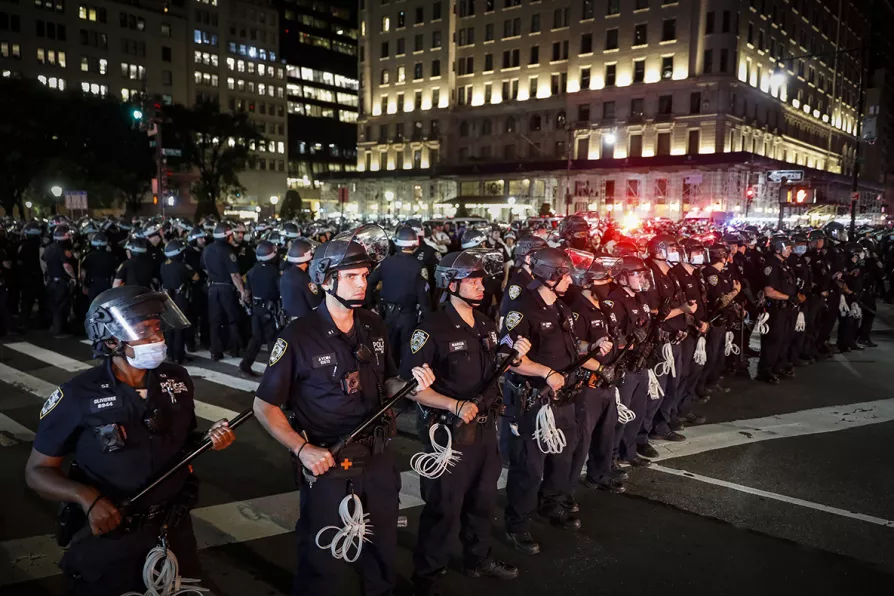The language of humiliation is a step towards a second civil war, argues RAMZY BAROUD

 ew York City Police Department officers stand in formation after arresting multiple protesters marching after curfew on Fifth Avenue on June 4, 2020, in New York, following the death of George Floyd
ew York City Police Department officers stand in formation after arresting multiple protesters marching after curfew on Fifth Avenue on June 4, 2020, in New York, following the death of George Floyd
THE murder of George Floyd in May 2020 by police officer Derek Chauvin was witnessed by millions of people around the world.
That was only possible because of a brave decision by a teenage passerby: 17-year-old Darnella Frazier, who was taking her nine-year-old cousin to the grocery store to buy snacks, started filming the events as they unfolded.
The daily occurrence of horrific police violence against black people, not just in the US but around the world, has been demonstrated over and over, not just by testimony but by recordings like the one made by Frazier.

What’s behind the stubborn gender gap in Stem disciplines ask ROX MIDDLETON, LIAM SHAW and MIRIAM GAUNTLETT in their column Science and Society

The Star's critics MARIA DUARTE and MICHAL BONCZA review Backlash: The Murder of George Floyd, The Uninvited, The Surfer, and Motel Destino











